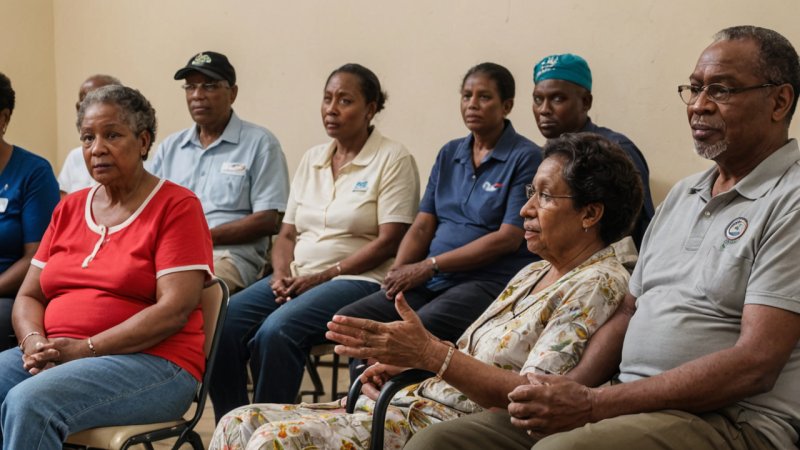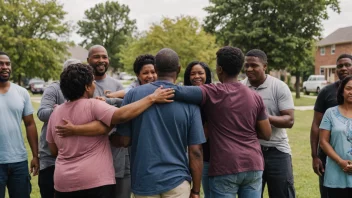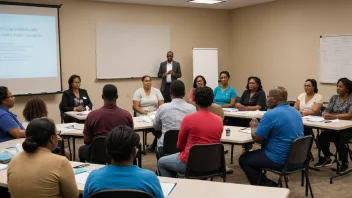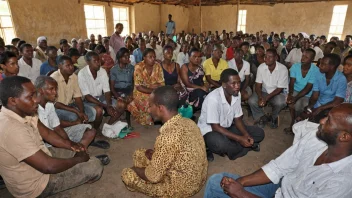In the face of humanitarian crises, older adults often find themselves in particularly vulnerable positions. As disasters strike—be it natural calamities, armed conflicts, or health emergencies—it is crucial to recognize the unique needs of this demographic. Their experiences, challenges, and resilience can offer insights that are vital for effective response and recovery efforts. By understanding and addressing the specific requirements of older adults, humanitarian organizations can foster more inclusive approaches that not only aid in survival but also enhance the dignity and well-being of older individuals during times of crisis.
The Unique Vulnerabilities of Older Adults
Older adults are often at a higher risk during humanitarian crises due to a combination of physical, social, and economic factors. Many experience mobility limitations, chronic health conditions, and cognitive impairments, which can hinder their ability to evacuate or access necessary resources. Additionally, social isolation can exacerbate their vulnerabilities, particularly in communities where family structures may be disrupted or where older individuals live alone. Economic challenges, including limited income and reliance on pensions or savings, can further complicate their ability to cope with sudden changes brought on by crises.
Health and Well-Being Considerations
Health care accessibility is a critical concern for older adults in humanitarian settings. Many require ongoing medical attention for chronic illnesses, such as diabetes or hypertension, and may depend on specific medications that can be difficult to procure during emergencies. Mental health is another essential aspect; older adults may face increased anxiety, depression, and loneliness during crises. It is imperative that humanitarian responses include mental health support tailored to the needs of older adults, ensuring they have access to counseling and community support systems.
Creating Age-Friendly Environments
Incorporating age-friendly practices into humanitarian response can significantly improve outcomes for older adults. This includes designing shelters that are accessible and safe, offering services that recognize the diverse needs of older individuals, and ensuring that communication is clear and considerate of varying levels of literacy and cognitive ability. Training staff and volunteers to understand the specific needs of older adults can also enhance the effectiveness of interventions.
Education and Empowerment Initiatives
Education is a powerful tool for empowerment, even in the midst of crises. Programs that focus on educating older adults about their rights, available services, and ways to contribute to their communities can foster a sense of agency and belonging. Workshops and informational sessions can be designed to engage older adults, enabling them to share their experiences and knowledge, which not only benefits their well-being but also enriches the community as a whole.
Intergenerational Programs
Encouraging intergenerational interactions can bridge gaps between older and younger generations, fostering mutual respect and understanding. Programs that promote collaboration between age groups can help combat ageism and ensure that older adults feel valued and needed. Such initiatives can include mentorship opportunities, community projects, and cultural exchanges that highlight the wisdom and experiences of older individuals.
Poverty Alleviation Strategies
Economic insecurity is a pervasive issue for many older adults, particularly in crisis situations where livelihoods are disrupted. Addressing poverty among older populations requires a multi-faceted approach that includes financial literacy training, access to social protection programs, and community-based support systems. By providing resources and support, humanitarian efforts can help older adults regain a sense of stability and security.
Access to Technology
In today’s digital age, technology plays a significant role in accessing information and services. Older adults may face barriers to using technology due to lack of training or access. Initiatives that provide digital literacy training can empower older adults to utilize technology for communication, information gathering, and even telehealth services. Bridging the digital divide is essential for ensuring that older adults can remain connected and informed during crises.
Spiritual and Emotional Support
Spiritual well-being is a crucial aspect of overall health, particularly for older adults who may rely on faith and community for comfort during difficult times. Humanitarian organizations should consider integrating spiritual support into their programs, offering spaces for reflection, prayer, and community gatherings. This can help foster resilience and provide a sense of hope and purpose for older individuals facing adversity.
Building Community Resilience
Resilience is not just an individual attribute; it is also a community characteristic. By involving older adults in community planning and response efforts, organizations can harness their strengths and experiences to build more resilient communities. Engaging older adults in leadership roles within response efforts ensures that their voices are heard and their needs are prioritized, ultimately leading to more effective and sustainable outcomes.
Conclusion
Understanding the needs of older adults in humanitarian crises is essential for creating effective and inclusive responses. By recognizing their unique vulnerabilities, addressing health and well-being considerations, promoting education and empowerment, implementing poverty alleviation strategies, and providing spiritual support, humanitarian organizations can make a significant difference in the lives of older individuals. It is vital for all stakeholders—governments, NGOs, and community members—to collaborate and advocate for the rights and dignity of older adults, ensuring they are not only survivors but also active contributors to the recovery process. In doing so, we foster a more compassionate and equitable world for all, regardless of age.






